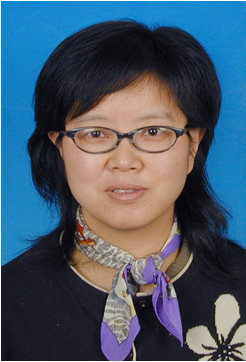DONG Jie
Date:2015-09-24

Name: Dong jie
Title: Professor
Address: Room 114, Research building,Institute of Apicultural Research, CAAS, Xiangshan, Beijing, China, 100093
Tel: +86-10-62594264
Email: jiedon@126.com
Brief Introduction:
Dong jie, female, born in 1966, Master Degree Researcher.
I am the post scientist of Modern Bee Industry and Technology System provided by China Agriculture Ministry, and research on bee products function factor direction. In recent years, I preside over two agricultural technology demonstration projects; setting two industry standards; revising one industry standards. I have win one provincial award、one college prize; award five items of patent for authorized invention; publish three SCI theses、more than 40 papers in Chinese core journal and edit three books as editor-in-chief.
Education Background:
1984.09-1988.07: B.S. in Food and Biochemistry Major, College of Arts and Science of Beijing Union University.
1996.9-2000.7:M.S. in Agricultural Product Processing Major, Institute of food science, China Agricultural University.
Research Area:
1. Bioactive substance: the ingredients that playing a functional role in bee products or other functional food are mainly studied. Furthermore, these bioactive substance can be used as functional food ingredients.
2. Separation methods of bioactive substance: direct separation and obtain from natural food; indirect obtain from natural ingredients which were processed.
3. The function of bioactive substance: the function of bioactive substance is studied by means of biotechnology. These functions include improving immunity, anti-aging, reducing blood pressure, blood sugar and cholesterol, and so on.
Hiring graduate students:
1. The extraction and purification of major royal jelly proteins and other nutrient substances from royal jelly.
2. The functional factor of bee pollen in China
Bee pollen, one of bee products which has great output in bee industry, is usually known as miniature nutritional reservoir. And it is a rare renewable resource. With vast territory, abundant plant resources and bee species resources, our country has unusually rich resource of bee pollen. However, bee pollen was not systematically studied by research institution in our country. Furthermore, there is few studies about the basic data and functional factor accumulation of bee pollen, especially wild bee pollen resources and herbs pollen resources.
Major Royal Jelly Proteins make up >80 of the total royal jelly protein, and have important physiological and biochemical functions for honey bees and human. For example, MRJPs is believed to play a major role in the caste determination in bees, and have a multitude of pharmacological activities: antioxidant, hipocholesterolemiant and hepatoprotective, hypotensive and blood pressure regulatory, antitumor, and immunomodulatory. The function of biological macromolecules depends mainly on its spatial structure, however, research has not yet been mainly directed to the isolation and purification of the individual MRJPs from RJ, and there is little research on structure about these proteins. So related work is necessary to continue to carry out, and establish a royal jelly of quality evaluation system gradually.
3. Quality assessment for honey, royal jelly, bee pollen and propolis.
Publications:
1. Zhang H C, Wang G X, & Dong J. (2015). Inhibitory Properties of Aqueous Ethanol Extracts of Propolis on Alpha-Glucosidase. Evidence-Based Complementary and Alternative Medicine.Volume 2015, Article ID 587383, 7 pages
2. Dong J, Gao K, Wang K, Xu X, & Zhang H C (2015). Cell Wall Disruption of Rape Bee Pollen Treated with Combination of Protamex Hydrolysis and Ultrasonication. Food Research International. 75:123–130
3. Yang Y T, Zhang H C, Dong J. (2015). Effect of three esterification methods on GC-MS determination of fatty acids among five kinds of bee pollen. Journal of Chinese Institute Of Food Science and Technology, (3): 248-254
4. Zhang H C, Zhao L L, Hu H, Dong J. (2014). Polyphenolic composition and antioxidant properties of propolis. Journal of Food Science. 13:59-65
5. Gao K, Zhang H C, & Dong J. (2011). Protamex hydrolysis and cell wall of rape bee pollen. Journal of Food Science, 32(20), 99-103
6. Zhang H C, Sun Q S, Wang G X, Qu Y J, & Dong J. (2011). Inhibitory effect of ethanol extract from propolis on alpha-glucosidase. Journal of Food Science, 32(5), 108-110
7. Zhang H C, Wu Z S, Gao W H, & Dong J. (2011). Research progress on modification methods for flavonoids. Journal of Food Science, 32(3), 256-261
8. Zhang H C, Wang G X, Luo Z M, Zeng X X, & Dong J. (2012). Research progress on inhibitors of advanced glycation endproducts. Journal of Food Science. 33(17), 297-302
9. Yan S, Zhang H C, Dong J. (2012). Analysis of volatile composition of propolis from different plant sources. Journal of Food Science.10: 268-273
10. Yan S, Zhang H C, & Dong J. (2012). Analysis of key aroma-active components of propolis and poplar tree gum. Journal of Food Science, 33(4), 157-161
11. Yan S, Zhang H C, Dong J. (2012). Application of electronic nose in quality evaluation of propolis. Journal of Food Science, 33(20): 201-205
12. Yan S, Zhang H C, & Dong J. (2011). Analysis of volatile components of propolis from different geographical origins. Journal of Food Science, 32(20), 191-196
13. Yan S, Zhang H C, & Dong J. (2011). Analysis of volatile components of propolis from different geographical origins. Journal of Food Science, 32(20), 191-196
14. Hu H, Dong J, Zhang H C. (2014). Behavior observation of worker bees collecting propolis and plant origin of propolis. Journal of Food Science, 15: 013
15. Luo Z M, Dong J, Zhao L L. (2013). Analysis of the polyphenolic fraction of propolis from Henan. Journal of Food Science, 34(10): 139-143
Books:
《Honey and human health》 Chinese Agricultural Press Published in 2014
Awards:
1. I have obtained the second prize of research results on 2010-2011 annual “Industrialization demonstration and research in key technologies of bee products processing in a safe and efficient manner” held by Chinese agricultural science and technology.
2. I have obtained the second prize of achievements of science and technology on 2013 annual “The industrialization development and efficient utilization of bee resources” held by Chinese academy of agricultural sciences.